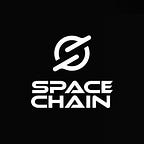SpaceChain AMA ━ 7 March 2023
On 7 March, the SpaceChain team held an AMA (Ask Me Anything) with CEO Cliff Beek and CTO Jeff Garzik in discord.
In preparation for the AMA, we had asked the community to submit their questions to the team a few weeks before. if you missed it, you can check out the video recording below.
As there were many questions submitted by the community, we were unable to finish answering everything within the hour. However, the SpaceChain team has compiled the answers to the remaining questions.
If you have any further questions, feel free to reach out to our admins on our social platforms.
We thank everyone for their participation and support.
1. Is SpaceChain strapped for cash? Are there any SPC tokens getting sold by management or anyone affiliated with SpaceChain or other companies to raise funds?
SpaceChain generates revenue via customer contracts and governmental grants and has been quite successful in doing so. It is not in the interest of SpaceChain to sell large amounts of tokens that could affect market conditions and we have not done so to fund developmental activities. However, any individual who holds an asset does have the right to sell or exchange that asset.
2. Will the community be able to vote on initiatives or will SPC make all decisions moving forward?
As we release our DSA platform, user feedback will be absolutely essential to our success. Once the platform is established, we would like to utilize voting and governance systems to support our development activities. But in the meantime, any and all feedback is much appreciated so please do contact us with any questions or ideas.
3. How will you decide what data SPC token holders can access in the DSI?
SpaceChain aims to increase access to all space services. However, the DSI is a relatively new idea that brings multiple parties together across the space industry. To start the adoption we are working with specific satellite service providers who are opening up various data sources which will be accessible to token holders. Over time, more satellite operators should be involved and more features should become available to all.
4. What is the minimum SPC token amount a user must hold in order to participate in beta testing?
We anticipate having an answer closer to the beta release date.
5. There were plans to launch 77 satellites previously. How much have the plans changed since then?
SpaceChain has various options at its disposal in terms of satellite launches and hardware/software deployments. Depending on the way we end up building our service model and who adopts it, SpaceChain may have a large number of satellites in orbit or our technology will be heavily involved in other parties’ satellites that join the DSI.
6. Is it true that the first two satellites with QTUM nodes are no longer part of the ecosystem, as they are not operational at the moment? If so, why are they listed on the site?
At SpaceChain we believe it is important to acknowledge our achievements and heritage to date. This includes the QTUM nodes, the first of which has the honor of being the first-ever blockchain node in space, a momentous achievement that proved blockchain’s role in the space economy. As with any and all satellites they have a service lifespan and these satellites’ lifespan has since come to an end.
7. In 2021, the infrastructure of the little-known Biteeu exchange was launched aboard the SpaceX Falcon 9 rocket. What value does this project have for SpaceChain itself? The same applies to the Velas node. Are there any plans to share this blockchain in the future?
The execution of the launch for both Biteeu and Velas demonstrated globally to our community that SpaceChain was able to deliver their platform into orbit.
8. What events do you plan to participate in 2023?
We hope to have a presence in various events throughout 2023 so please keep an eye on our socials to see where we may be in attendance.
9. Whose regulatory restrictions does spacecraft need to meet, the US, UK etc?
It depends on different factors such as where the satellite operates from and which jurisdictions it is operating in. But in most cases for SpaceChain, we must meet the US and EU requirements, especially for the Space Station.
10. There is tons of synergy between SpaceChain and Starlink. Has there been any conversations about integrating them into the DSI?
We can’t necessarily disclose any information in regard to collaborations that have not been made public.
11. How long do payloads last? Could a satellite provider decide after a few months to remove it and how would that affect the network?
Typically, the expected life duration of an LEO satellite is approximately three to four years. The SpaceChain payload will also support its required minimum functionality.
12. We know that ETH gas fees are so high that no one user will use a Dapp with ETH fees. Polygon proves that as users increase so do the gas fees and at some point, they will also reach eth fees. Will SpaceChain integrate into a different chain than ETH? If yes, will you integrate into an ISO 20022 standard chain like Hedera HBAR and Stellar XLM which we know that ISO 20022 chains can finalize as many transactions per second as Visa without raising the gas fees?
SpaceChain is chain agnostic, behaving as an infrastructure provider so that we can integrate any chain for space-based services.
Note: This compilation of AMA questions has been revised to improve the grammar and readability.
